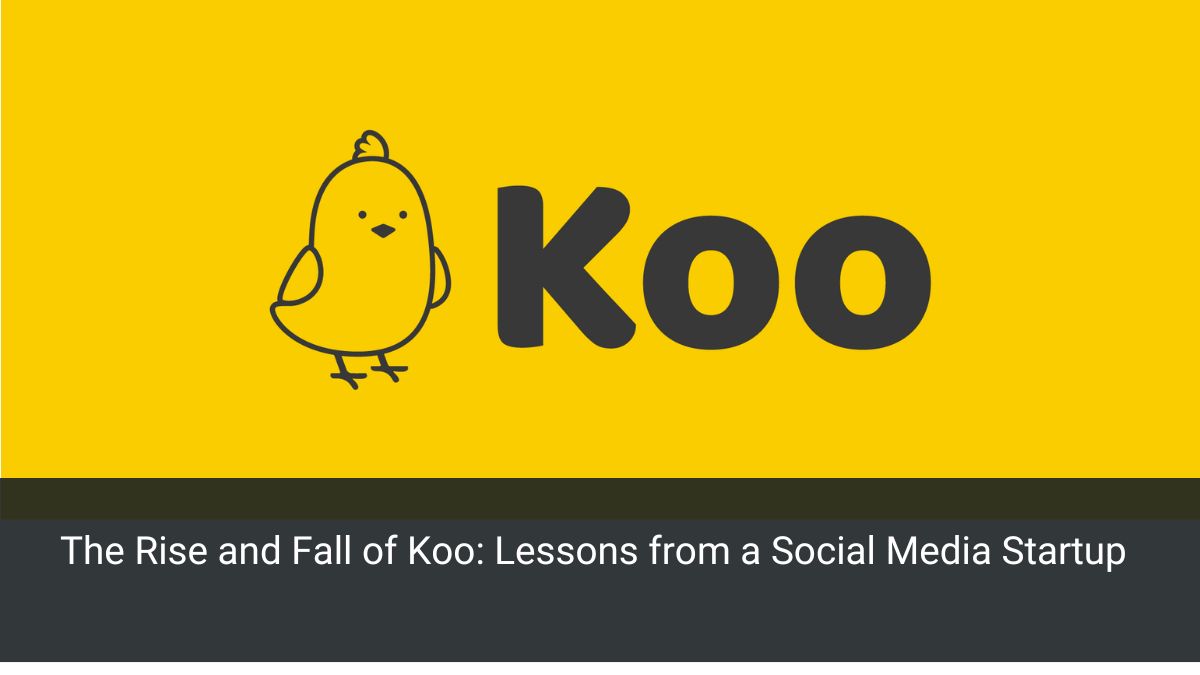Social Media
The Rise and Fall of Koo: Lessons from a Social Media Startup

In the ever-evolving landscape of social media platforms, where giants like Facebook and Twitter dominate, smaller players often struggle to carve out a niche. Koo, a social media startup heralded as India’s answer to Twitter, recently announced its closure after failed acquisition talks. This article delves into the journey of Koo, analyzing its rise, challenges faced, and the lessons to be learned from its closure.
The Genesis of Koo
Founded in 2019 by Aprameya Radhakrishna and Mayank Bidawatka, Koo was officially launched in March 2020. Positioned as a homegrown alternative to Twitter, Koo gained traction amid the Indian government’s disputes with Twitter in 2021. The platform quickly became a rallying point for those seeking a local social media voice amidst global tech giants.
Challenges Faced
Acquisition Talks and Setbacks
Despite initial promise, Koo’s journey was fraught with challenges. The founders, in a candid LinkedIn post, revealed that multiple acquisition talks with larger internet companies and media houses faltered. The reluctance to engage with user-generated content and the unpredictable nature of social media platforms were cited as key barriers.
Financial Struggles and Layoffs
Financial sustainability proved elusive for Koo. By early 2023, the company faced significant layoffs, reducing its workforce by 30%. The monthly active users (MAUs) also dwindled from a peak of 9.4 million in mid-2022 to 3.1 million by April 2023, reflecting a stark decline in user engagement.
Cash Burn Challenges
Despite efforts to curb expenses, Koo struggled to contain its monthly cash burn rate. Reports indicated a reduction from approximately Rs 16 crore to Rs 10.2 crore by April 2023, but this fell short of the targeted Rs 6.5 crore. The escalating costs of maintaining a social media platform, coupled with declining user numbers, exacerbated financial woes.
Strategic Partnerships and Missed Opportunities
Quest for Sustainability
In a bid for survival, Koo explored strategic partnerships with platforms like Dailyhunt and Sharechat. However, these negotiations failed to materialize into concrete agreements. The founders expressed regret at not securing necessary capital to capitalize on their platform’s momentum, particularly when they were on the cusp of surpassing Twitter’s reach in India.
Reflections on Innovation and Competition
Innovation Amidst Adversity
Despite its challenges, Koo prided itself on developing a scalable product with advanced systems and algorithms in record time. The platform’s emphasis on stakeholder-first philosophies aimed to differentiate it in a crowded market dominated by global giants.
Competitive Landscape
The closure of Koo underscores the intense competition within the social media space. While global players wield significant influence, local startups face formidable hurdles in scaling operations and maintaining financial sustainability.
Lessons Learned and Conclusion
The Imperative of Adaptability
Koo’s journey highlights the imperative for startups to remain adaptable in a rapidly changing digital ecosystem. The ability to pivot strategies, navigate regulatory challenges, and secure sustainable funding are critical for long-term success.
The Human Element
Behind every startup’s journey are individuals who invest not only capital but also passion and vision. The founders of Koo demonstrated resilience and commitment, even in the face of daunting odds.
As Koo bids farewell, its story serves as a poignant reminder of the highs and lows inherent in entrepreneurial ventures. It prompts reflection on the future of social media innovation and the evolving dynamics between global platforms and local alternatives.
While Koo’s closure marks the end of a chapter, its legacy resonates in the broader discourse on digital innovation and entrepreneurship. As the tech landscape continues to evolve, the lessons gleaned from Koo’s experience will undoubtedly inform future endeavors in the quest to redefine social media engagement.
